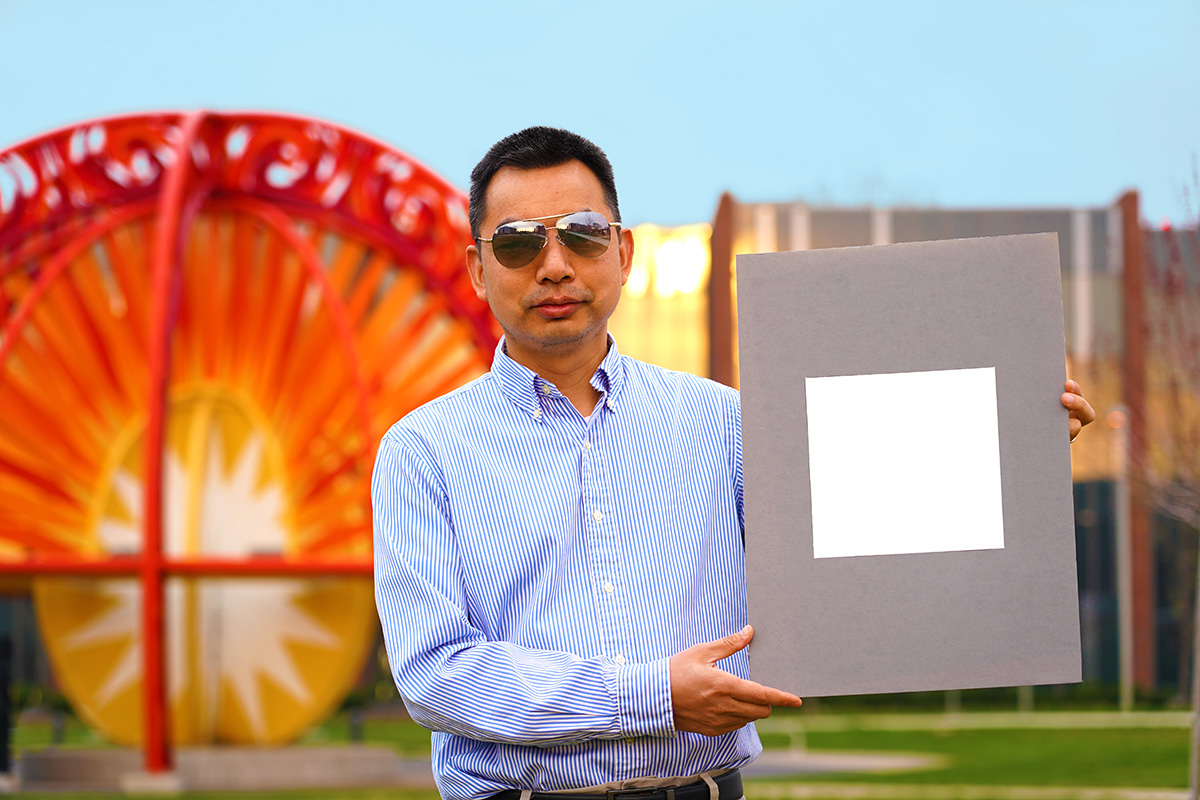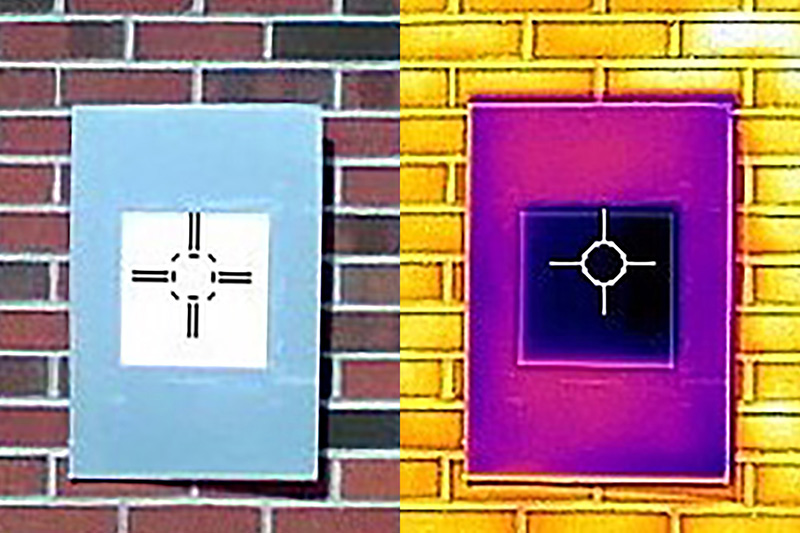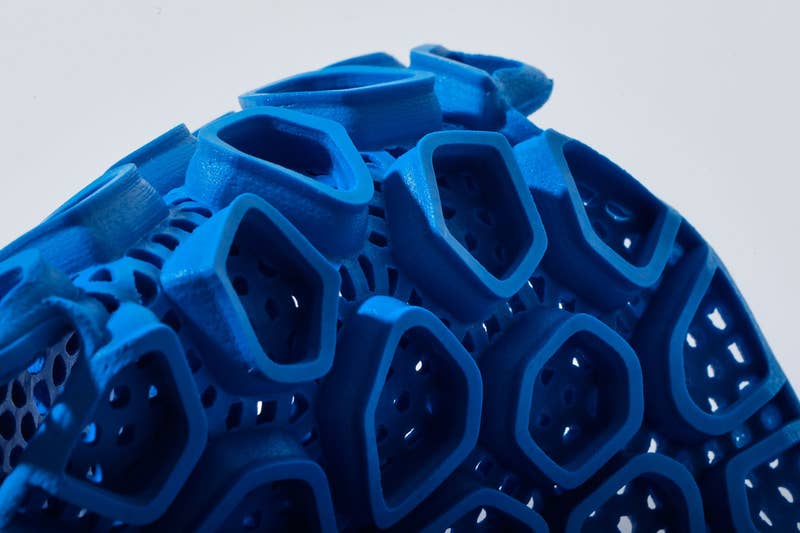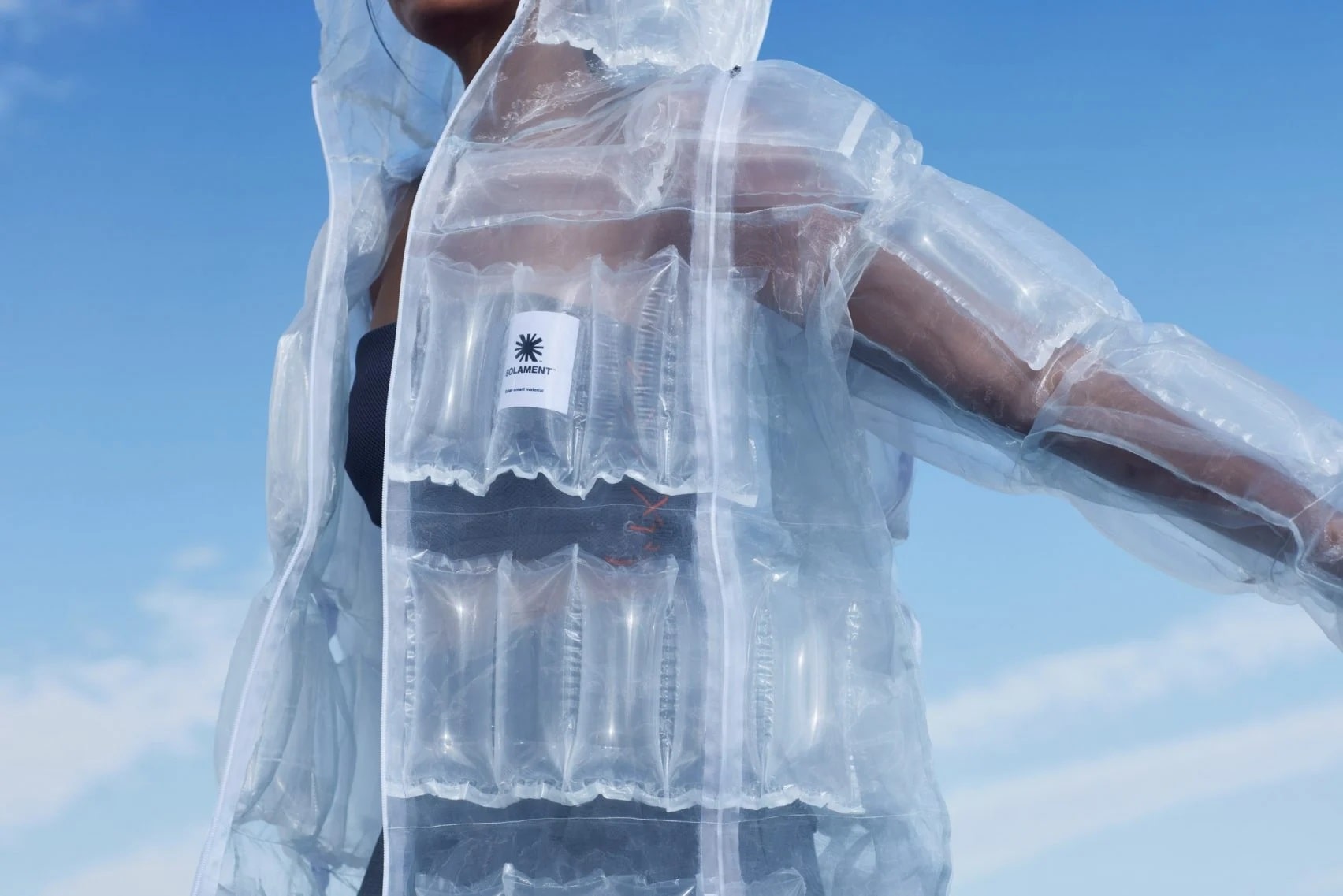
Ultra-white paint reflects almost all sunlight
As reported in the research paper published by Applied Materials & Interfaces (ACS), engineers at Purdue University (Indiana) have developed an ultra-white acrylic paint that can reflect almost all incident sunlight.
While conventional white paints currently available on the market designed to reject heat typically only reflect between 80% and 90% of the incident light and are unable to cool surfaces more than their surrounding environment, this advanced paint has the ability to reflect solar rays up to 98.1%.
 Image curtesy of Purdue University/Jared Pike
Image curtesy of Purdue University/Jared Pike
The relevant ingredient in the formulation of this paint is an extremely high concentration of barium sulphate, a permanently white chemical compound (which is why it is also known as permanent white) used as a non-toxic pigment in the manufacture of photographic paper and cosmetics, as well as as a constituent of paints.
Sunlight features different wavelengths, therefore barium sulfate particles of different sizes are used in order to be able to scatter a wider wavelength range.

An infrared camera shows how a sample of the whitest white paint (the dark purple square in the middle) actually cools the board below ambient temperature, something that not even commercial “heat rejecting” paints do.
Image curtesy of Purdue University/Joseph Peoples
In October 2020, the researchers had already obtained a paint capable of determining a temperature decrease of the treated surfaces of 19 °F during night hours and of 8 °F during warmer daytime hours compared to those of the surrounding environment without any type of energy consumption, thanks the paint’s ability to reflect 95.5% of the incident light. They define this innovative property presented by a surface – feature a lower temperature than that detected in that area in conditions of direct exposure to sunlight – counterintuitive.
If painted surfaces are protected from dust and dirt, this invention compatible with current industrial manufacturing processes can help fight global warming.


